In mid-June 2025, Phu Yen General Hospital admitted patient D.TV (74 years old) with severe chest pain, shortness of breath, and fatigue. Electrocardiogram results showed that the patient had an acute myocardial infarction without ST elevation (partially blocked coronary arteries supplying blood to the heart muscle, or blocked a branch of the main coronary artery, causing reduced blood flow to the heart, causing heart damage and disrupting the ability to pump blood throughout the body).
The patient was quickly taken to the Interventional Cardiology Unit of the Department of Intensive Care - Anti-Poisoning; the interventional team performed percutaneous coronary intervention. Doctor CKI Le Duy (Department of Cardiology - Geriatrics, Phu Yen General Hospital), the main surgeon, said: "The patient had severe obstruction of the anterior interventricular coronary artery branch. The interventional team performed angioplasty and stent placement, successfully recanalizing this artery branch. After the intervention, the patient was stable and was actively monitored at the Department of Cardiology - Geriatrics".
A few days later, the patient suddenly developed symptoms of right-sided hemiplegia and speech disorder, despite being treated with dual antiplatelet drugs to prevent blood clots from forming and blocking the stent. Diagnosing the patient with an acute cerebral infarction, doctors used intravenous thrombolytic drugs (blood clot-dissolving drugs) to treat him. After only 24 hours, the patient was able to move his right limbs and speak in sentences, albeit slowly and weakly. The patient continued to be monitored and treated to prevent other cardiovascular events and has now been discharged from the hospital in a stable condition.
Not long before, the emergency - interventional cardiology - intensive care team of Phu Yen General Hospital also successfully treated a pregnant woman with acute myocarditis, with life-threatening complications. The patient was VTTT (26 years old, had just given birth 4 months ago, in Ea Ly commune) who was admitted to the hospital with a high fever, vomiting a lot, low blood pressure, fatigue, and a heart rate of only 20 - 30 beats/minute. The electrocardiogram showed that the pregnant woman had a third-degree atrioventricular block - a serious heart rhythm disorder that can lead to cardiac arrest and death if not treated promptly.
A coronary intervention at Phu Yen General Hospital. |
Very quickly, the emergency - interventional cardiology - intensive care team was activated, and a temporary pacemaker was placed. Through the catheter, the doctor inserted an electrode into the patient's heart chamber so that the electrode could emit pulses to regenerate the heart's depolarization; the heart would contract according to that electrical pulse. With timely intervention, the heart rate and blood pressure stabilized, and the mother was out of danger; she was then transferred to Thong Nhat Hospital ( Ho Chi Minh City). Here, the patient was diagnosed with acute myocarditis caused by Adenovirus. After two weeks of intensive monitoring and treatment, but the heart muscle did not recover, the patient was placed with a permanent pacemaker.
Dr. Nguyen Duy Hieu (Department of Cardiology - Geriatrics, Phu Yen General Hospital) said: "Acute myocarditis is an inflammatory disease of the heart muscle, often caused by viruses or abnormalities in the immune response. In some cases, the disease can progress rapidly, impairing the heart's contractile function, disrupting the heart's electrical conduction, causing third-degree atrioventricular block, threatening the patient's life if not treated promptly."
Since the end of 2016, Phu Yen General Hospital has deployed percutaneous coronary intervention techniques, with the transfer from Thong Nhat Hospital; thereby helping hundreds of patients with acute myocardial infarction receive timely myocardial reperfusion treatment and cardiac resuscitation. In 2025, the hospital deployed temporary pacemaker placement techniques, saving many patients with bradycardia. |
Doctor Nguyen Duy Hieu said that from the beginning of 2025 until now, Phu Yen General Hospital has received and treated more than 50 cases of arrhythmia, most of which are cases of supraventricular tachycardia, some cases of acute myocardial infarction complicated by atrioventricular block and cases of myocarditis in young people, with a very high risk of death if not intervened promptly.
At Phu Yen General Hospital, percutaneous coronary intervention has been implemented since the end of 2016, with the transfer from Thong Nhat Hospital. Over the years, hundreds of patients with acute myocardial infarction have been treated with myocardial reperfusion, reviving the heart in time using this technique. From February 2025 to now, the Interventional Cardiology Unit has performed emergency interventions on more than 150 cases of acute myocardial infarction. The hospital has also implemented the technique of placing temporary pacemakers, saving many patients with bradycardia.
In order to improve the quality of diagnosis and treatment of cardiovascular diseases, from May 2025, Phu Yen General Hospital will deploy the technique of examining cardiovascular function using Holter electrocardiogram. This is a technique of continuously measuring the electrocardiogram within 24 - 48 hours, or even longer, helping to detect irregular heart rhythm disorders, which are easily overlooked by conventional electrocardiograms. In the near future, Phu Yen General Hospital will coordinate with Thong Nhat Hospital to deploy the technique of placing a permanent pacemaker, helping to improve heart function, prevent the risk of heart failure and the risk of death for patients with conduction disorders or bradycardia with irreversible symptoms. Patients have access to modern treatment techniques right at the local level, without having to be transferred to a higher level.
Since the end of 2019, Phu Yen General Hospital has implemented the treatment of cerebral infarction with thrombolytic drugs. Statistics show that the rate of patients with improved symptoms after treatment with thrombolytic drugs is about 75%. Thus, about 75% of the total number of cerebral infarction patients after treatment have reduced weakness and paralysis, and many of them do not have to suffer from the terrible consequences of this disease. There are patients who have recovered spectacularly, despite their old age.
Source: https://baodaklak.vn/y-te-suc-khoe/202507/gianh-giu-su-song-cho-benh-nhan-tim-mach-1df1614/


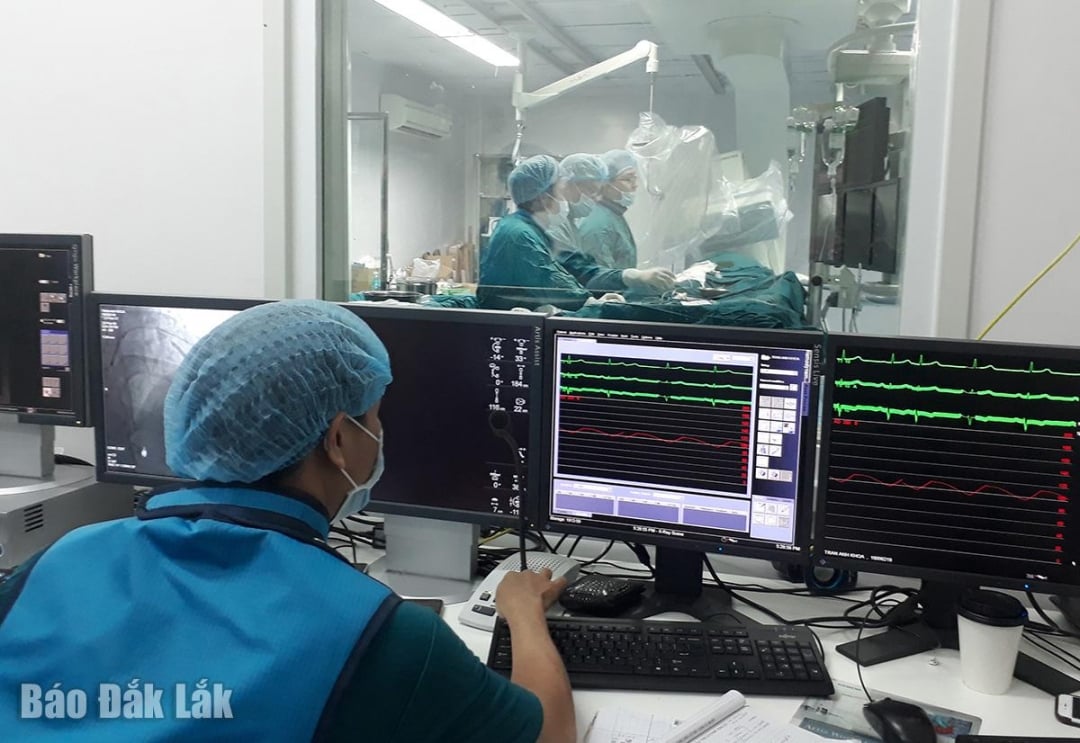



![[Photo] Prime Minister Pham Minh Chinh receives President of Cuba's Latin American News Agency](/_next/image?url=https%3A%2F%2Fvphoto.vietnam.vn%2Fthumb%2F1200x675%2Fvietnam%2Fresource%2FIMAGE%2F2025%2F12%2F01%2F1764569497815_dsc-2890-jpg.webp&w=3840&q=75)



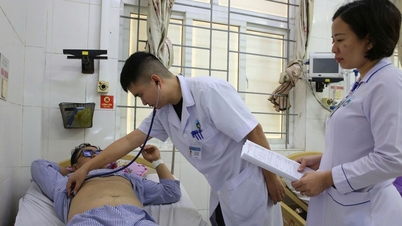



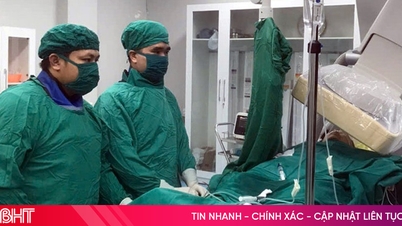










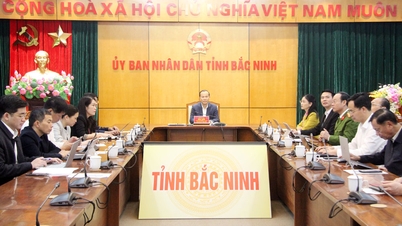








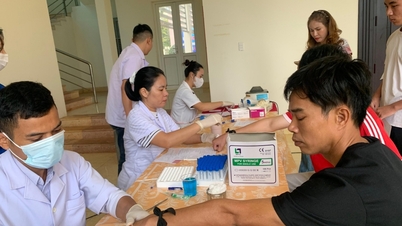










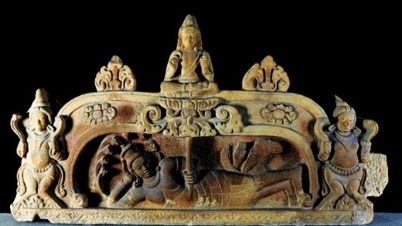





























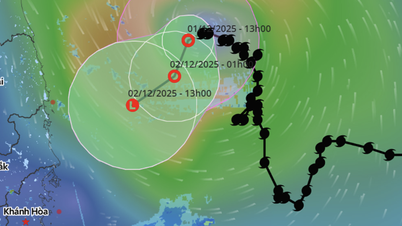






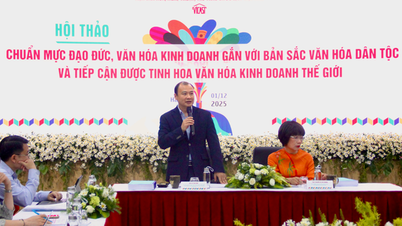


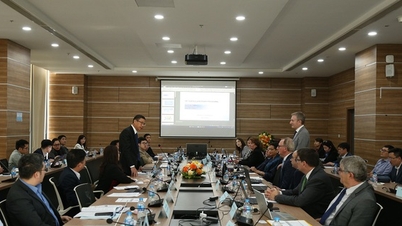






















Comment (0)